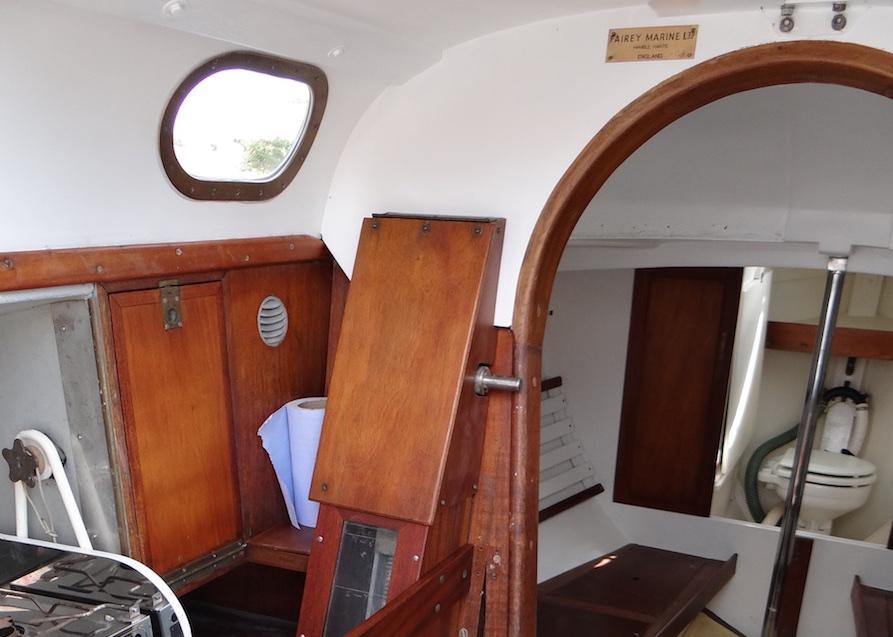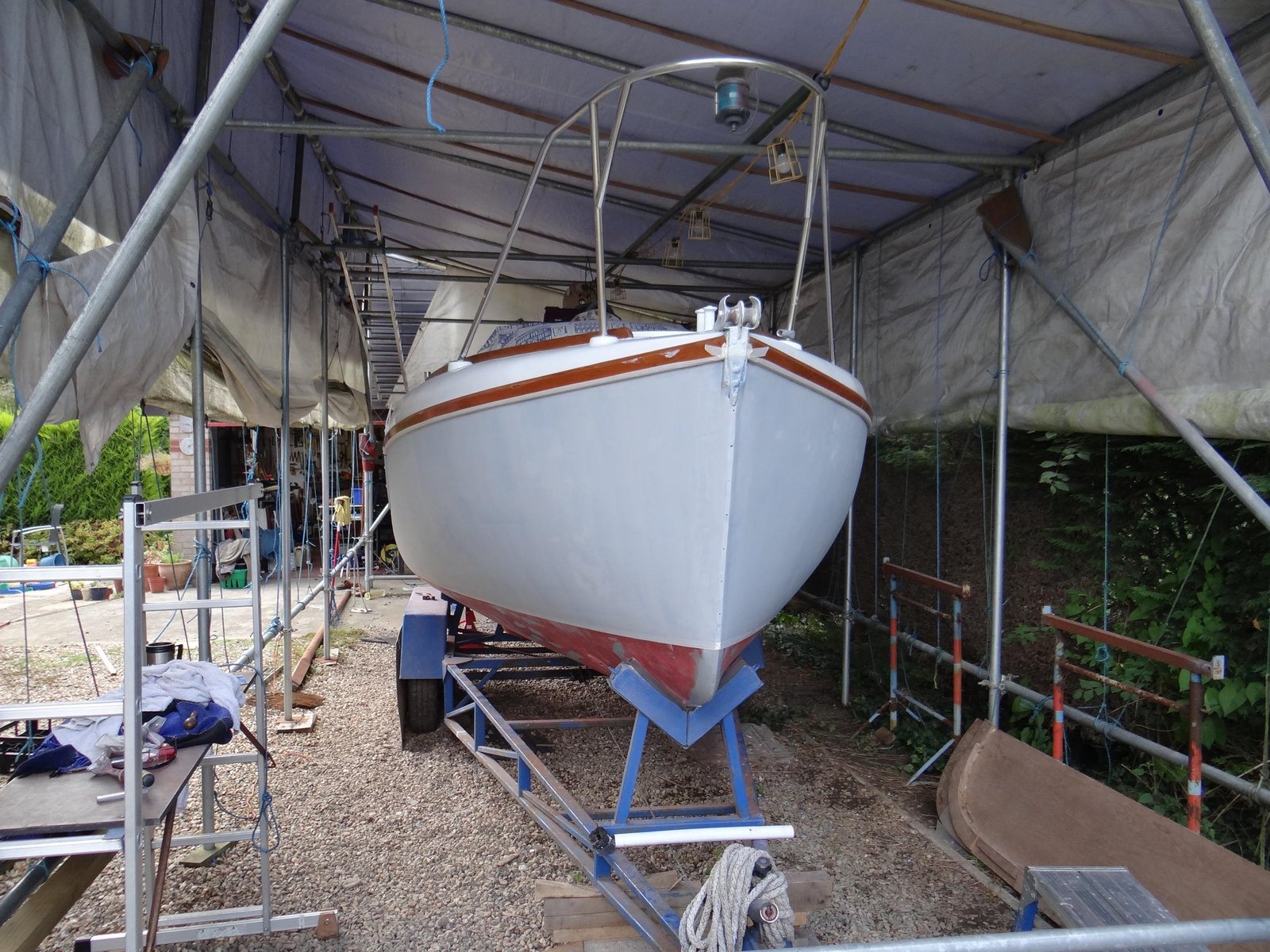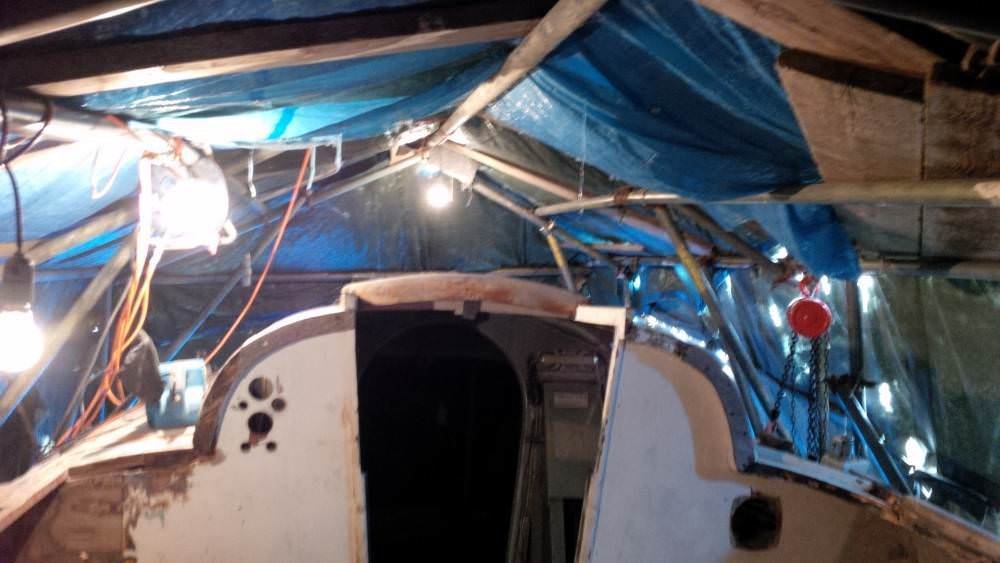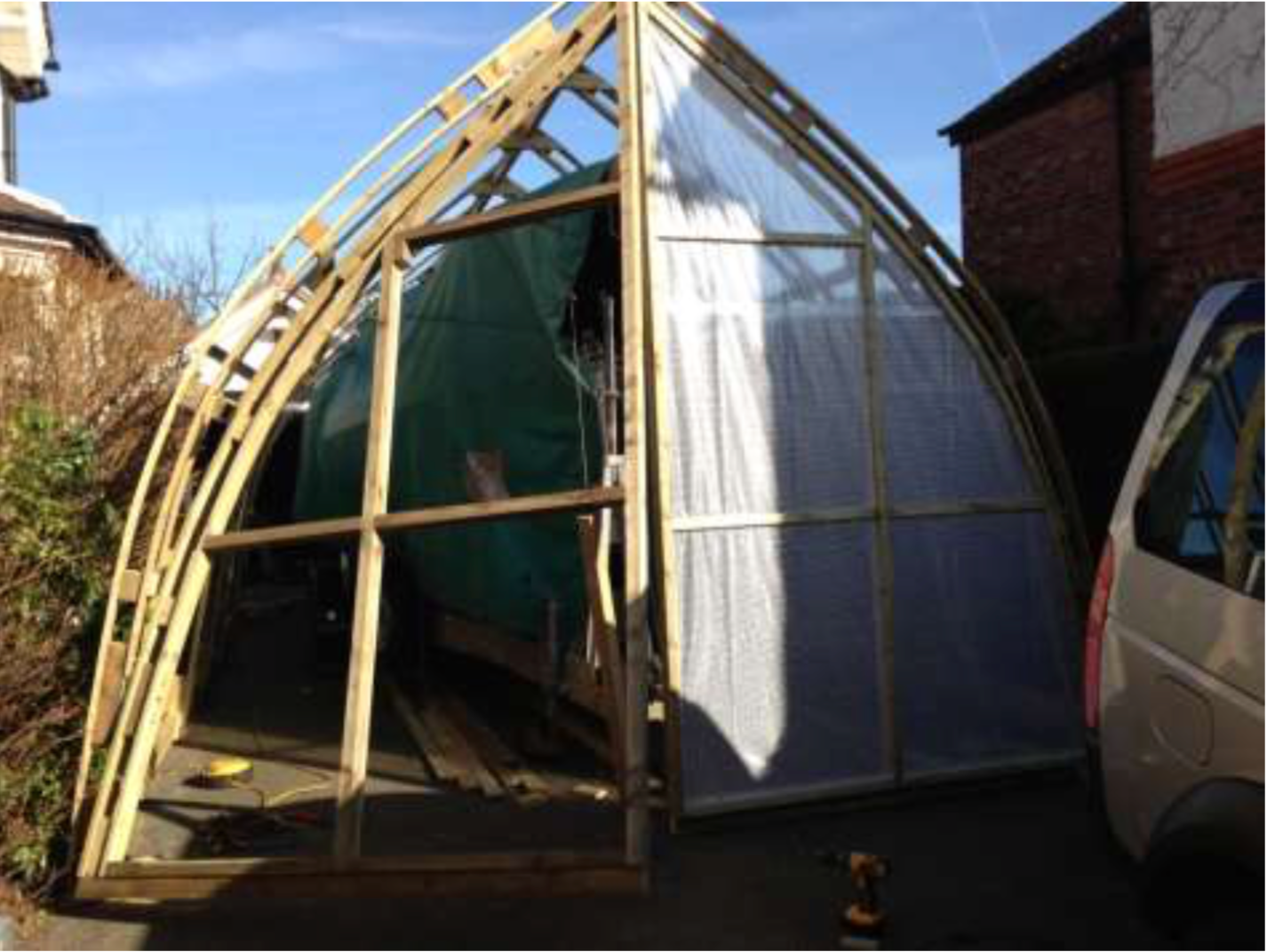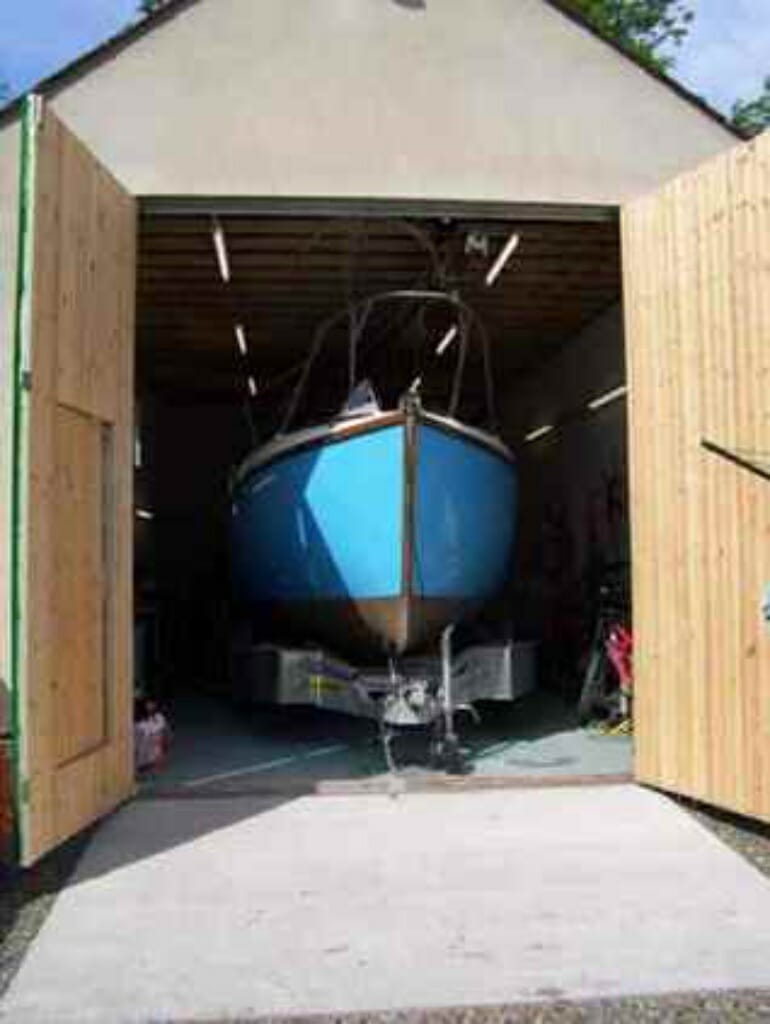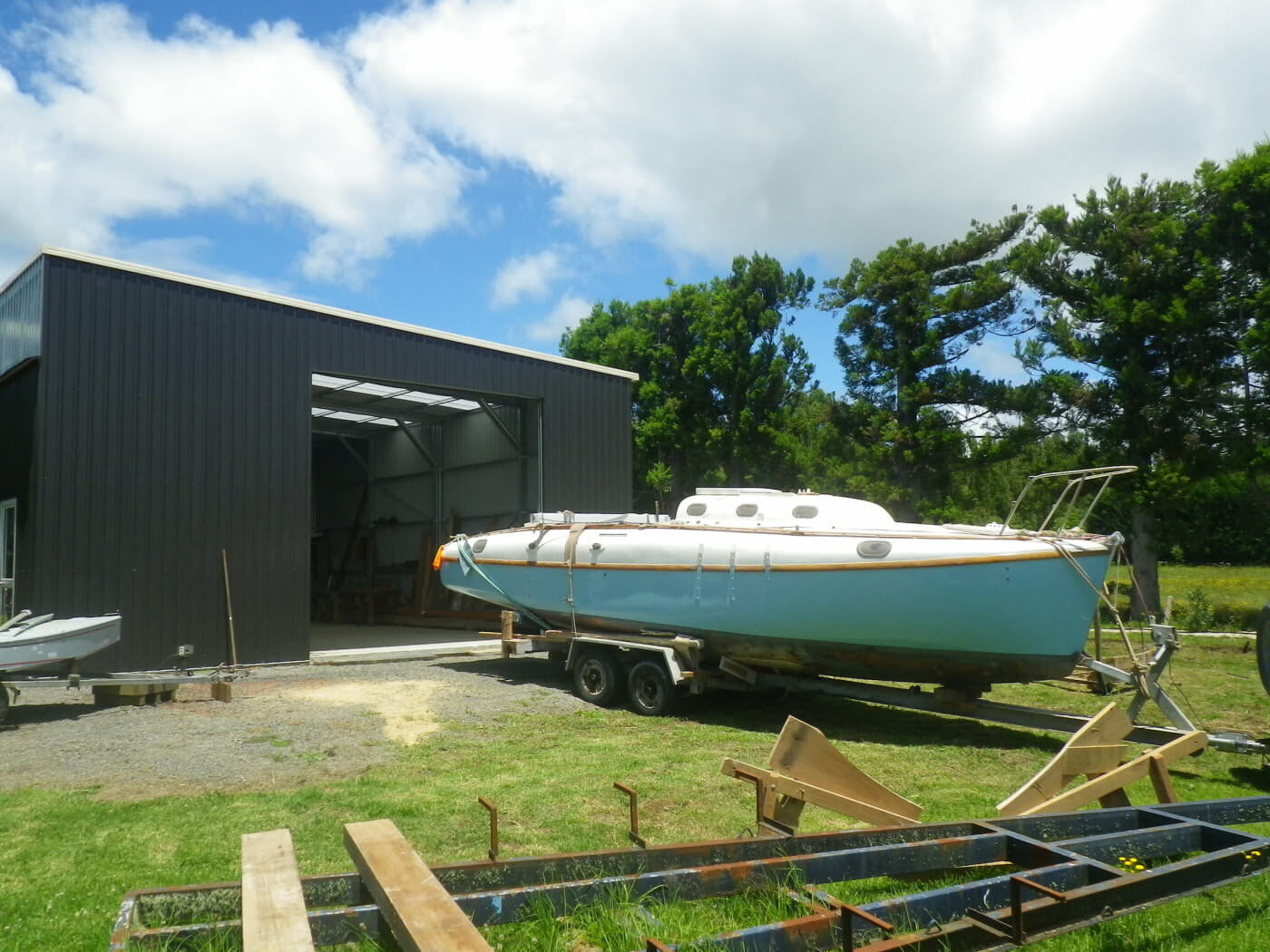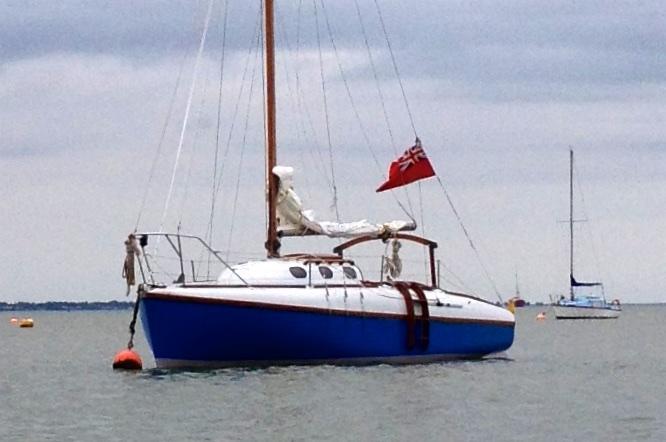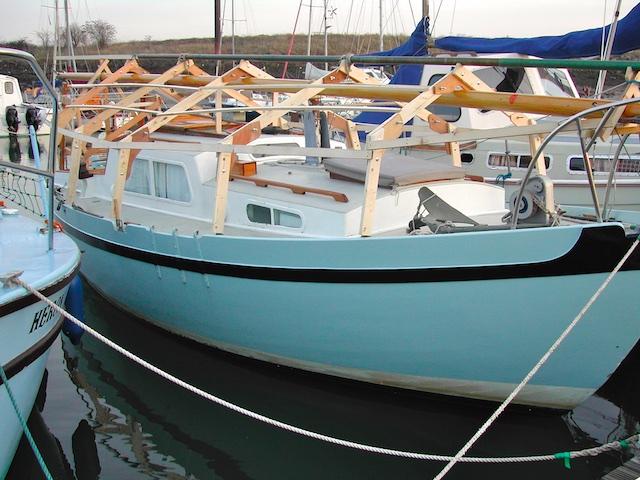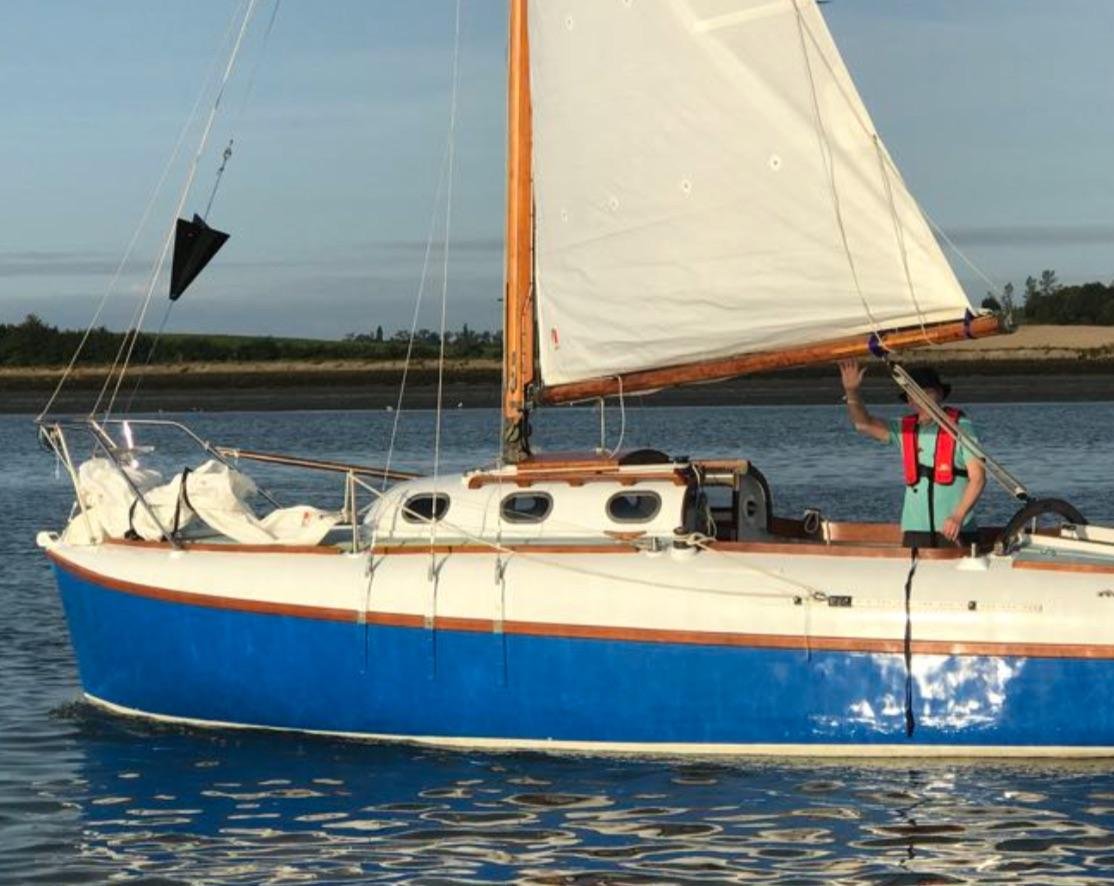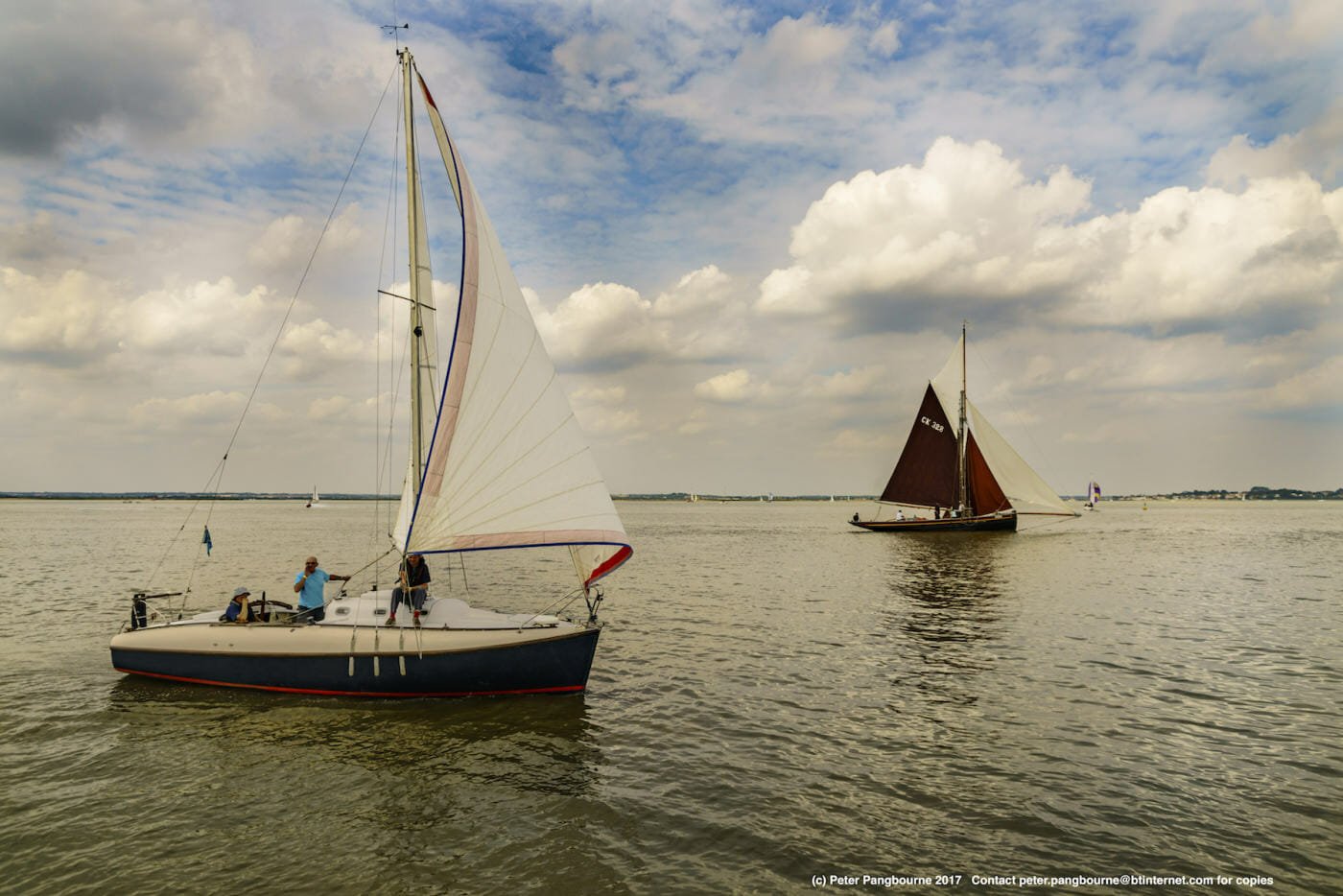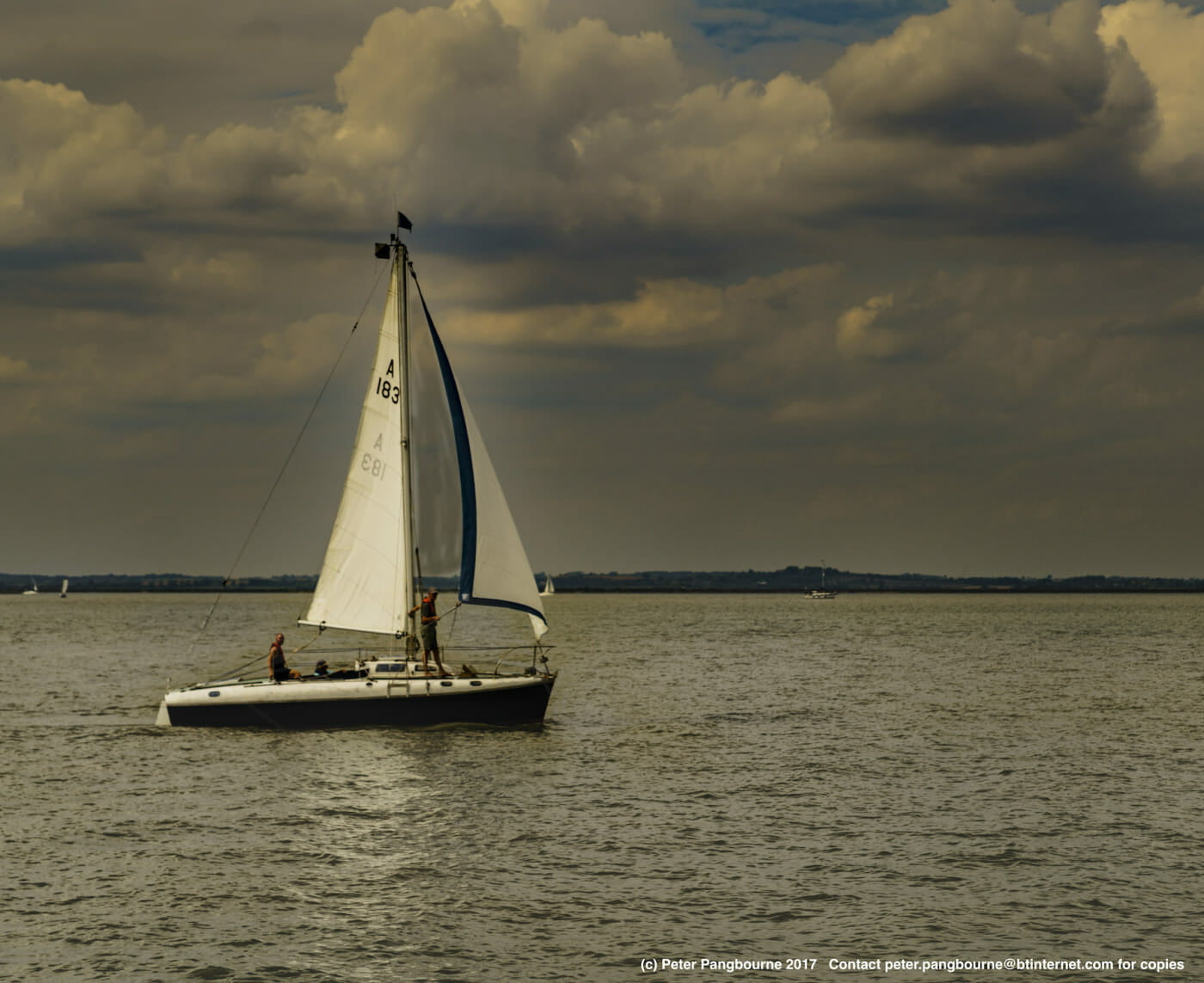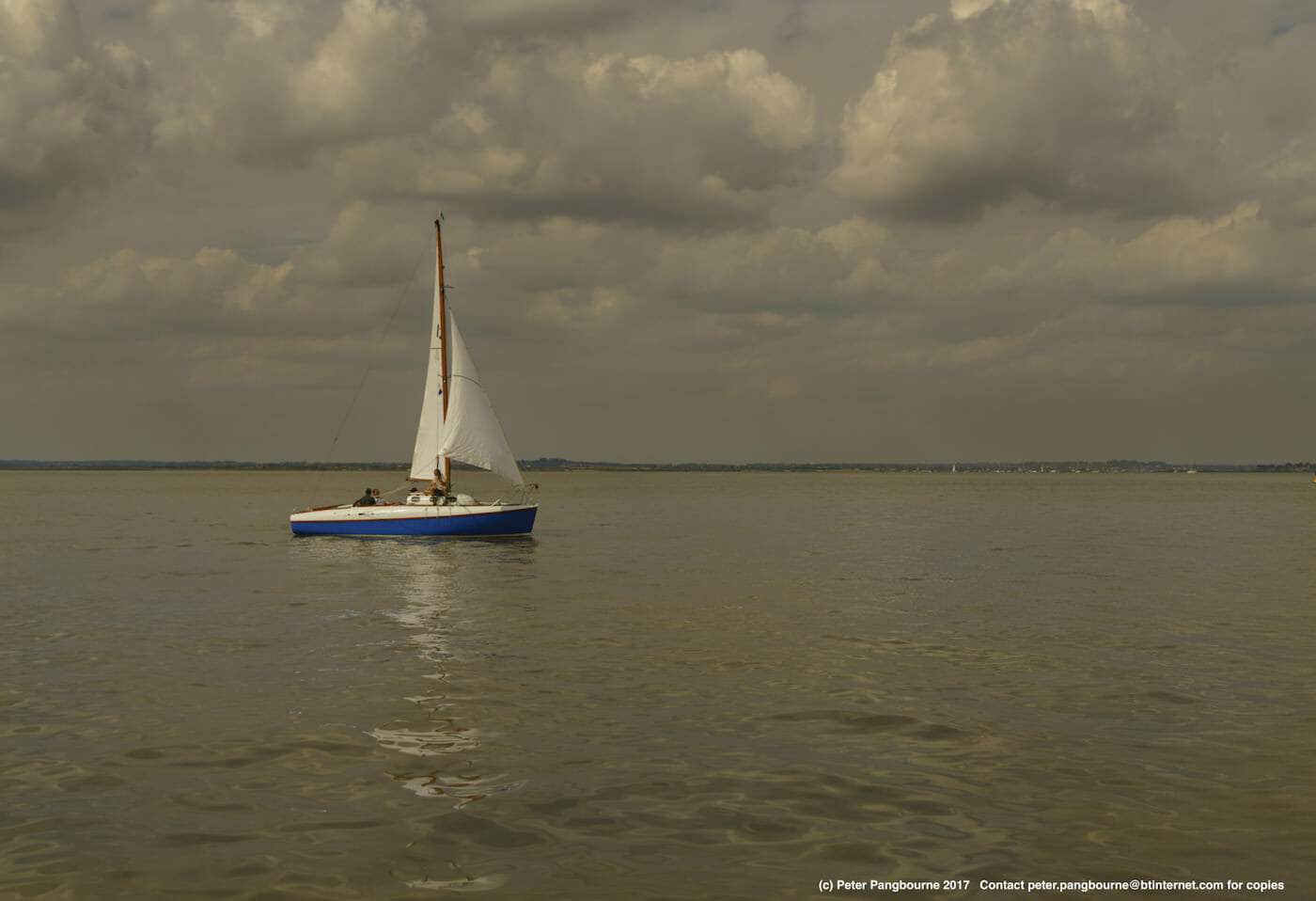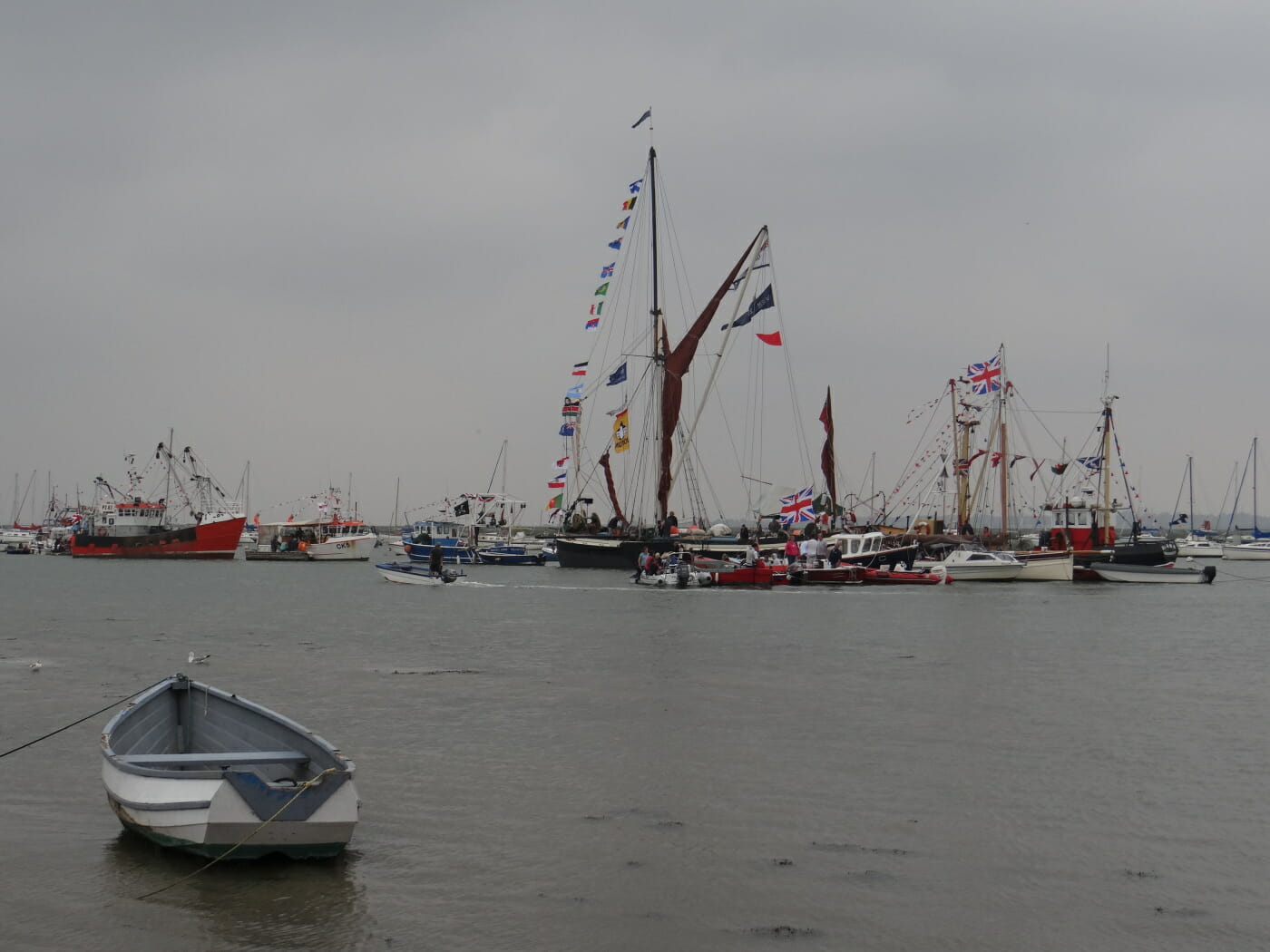Forum Replies Created
- AuthorReplies
 Nick PhillipsParticipant
Nick PhillipsParticipantThanks Richard for highlighting this.
Being charitable – At least the ad states that Russell is not willing to break her up at the moment. And is going to start to carry out some work. AND he gave our website a plug!
Fingers crossed for Terrapina in the coming months…..
 Nick PhillipsParticipant
Nick PhillipsParticipantHi Doug
Great news that A90 has got to her new home! (And well done Dom!)In answer to your question …. for me it would depend on how long the boat is going to be on the trailer and the extent of the works you plan. The way I winterise my trailer is to put wooden blocks under the trailer fore and aft of the wheels, and under the jockey wheel. This provides a completely stable platform and relieves the suspension. Ideally you need large blocks for stability. I use 18″ lengths of old sleepers – very rot resistant. I normally jack the front of the trailer first and place the blocks in front of the wheels, then jack and block the stern. This avoids issues with the jockey wheel.
The height of the raising from the ground depends on how long I intend her being on the trailer. During my protracted deck restoration I had the wheels clear but if the boat is only going to be on the trailer for a few months I lift just high enough to take most of the weight from the wheels. I know some people raise the trailer and remove the wheels before settling back onto blocks.
And I have worked on the boat without lifting the trailer at all. In this case I find a prop is required under the stern (to the deadwood) to hold the stern up. But the boat does move as you walk around!
Let us know how you get on.
Cheers
Nick
 Nick PhillipsParticipant
Nick PhillipsParticipantRobbie
Great to hear from you. This is the plate on A124 Helene. Sorry for poor quality, zoomed in on a much broader photograph.
The sail number is printed in the bottom right hand corner.Does thinking about builder plates mean anything with respect to Mara’s restoration?
Cheers
Nick


 Nick PhillipsParticipant
Nick PhillipsParticipantHi Jonathan
Thanks for the post. Its great to hear about Bluster’s future – with a hint of sadness aboutlosing her from the South East. She, and Jane, have been a major part of my time with Atalantas.
Wishing you and Bluster all the best – please do keep us informed about the work and I look forward to hearing about your exploits together.
Cheers
Nick Nick PhillipsParticipant
Nick PhillipsParticipantI am a sniffer – happy to use milk up to failure of a personal test. But milk soes have two excellent warning devices built in – smell and taste.
Lifejackets are more difficult to operate the sniff test. The bladder test is simple and excellent practice annually.
The cylinders are also easy to ‘sniff’ as you can weigh them (certainly the mainstream suppliers quote empty and full weights).
Are they autos? If so the third critical element is the activator. Unfortunately sniffing these without letting them off is much more difficult. They can be visually inspected for corrosion / mechanical issues but not much more. Therefore for me these should just be replaced at their ‘use by’ date.This PBO page provides a useful guide to diy checking. They recommend professional servicing but, other than being able to wave the certificate, I am not convinced this is necessary if you follow the advice in the article. Of course a different perspective would be that the additional £15-20 (maximum) for a professional service every two or three years is a small price to pay for peace of mind….
A final provocation. All of this ‘safety’ equipment is actually ‘recover after something has gone wrong’ equipment. If you have a sum of money to spend are you better to spend it improving the boat and its equipment (and your knowledge/experience) so that you can avoid needing to ever use safety equipment?
 Nick PhillipsParticipant
Nick PhillipsParticipantHi Doug
I don’t think so. As Mike says a Barn brings all sorts of benefits, but I do not believe you have to have one.
I had significant deck work to do on Helene and for that work I created a scaffold and tarpaulin ‘shed’ which worked brilliantly. See below. It cost about £1000 initially but has a secondhand value as well at the end (mine is actually loaned for an Airstrem renovation). See below for pictures of mine, and other people’s…
And once you have completed any necessarey renovations and got your Atalanta in good shape, a well fitted cover over a ridge pole (NOT the mast) with frames (polypipe or similar) to hold the cover off the woodwork will keep her in good fettle.

Chris Green had a similar construction for Kerry Piper.

And A17 Gambol has a very fine wood/canvas tent described in the 2013-14 Bulletin, Page 14 onwards.

Of course, the ideal would be to build yourself a Trevor-style Boat Shed, or go one better and pitch for a Murray version


 Nick PhillipsParticipant
Nick PhillipsParticipantWelcome to the AOA Doug.
Sweet Sue in Guernsey is indeed an excellent example. Check out her boat page (and if you have any photos why not add them there!)
As to boats near Warham, there are a few in the Association. Hopefully someone will respond. (We may be able to nudge one or two)
Failing that, why not take a trip to Suffolk over the Bank Holiday Weekend and see / climb over a collection of Atalantas. There will be at least four or five, including the original A1 Atalanta and opportunities to have a sail. There are also spare berths on some of them if you want to stay. And camping onsite. Outline details on the AOA60 page and more details about to be posted.
 Nick PhillipsParticipant
Nick PhillipsParticipantNice dog!
I think you have a very wise approach to Atalanta Mary. It is very easy (yup, I did it for too many years) to fall into the ‘forever repairing’ behaviour, with the boat stuck ashore. Your approach of using the boat and dealing with the jobs as they need to be dealt with is great. (Also helped because Atalanta Mary is a very sound boat having been loved by you and previous owners).
The barge match looks impressive – they are amazing vessels. And the crews very skilled in handling them.
I have been rueing the fact that I am not afloat and taking advantage of all the excellent Spring we have had. Its not work on Helene that has kept me ashore – she hasn’t had much of a look-in – rather a million and one other activities. But we are heading for the water soon, and certainly in time to take part in the AOA60 fun in August.
 Nick PhillipsParticipant
Nick PhillipsParticipantRichard – I love your ideas building on Alistair’s original post and there is definitely a lot we could do. The challenge is having the time, technology and capability to use it but I am enthused by this thread. A relatively simple start might be to do as you say and do some feature videos on the unique aspects of the Atalanta. I need to catch up with Alistair and his GoPro……..
 Nick PhillipsParticipant
Nick PhillipsParticipantWhat a brilliant idea. I would love to join you but I have already got commitments on the Sunday. Sounds perfect – The Orwell, a collection of classic and modern yachts, a well-found Atalanta and a fridge full of beer. [Yes folks, Atalanta Mary includes a fridge!]
Drop us some pics of the event. Not just the racing, the beer as well…..
 Nick PhillipsParticipant
Nick PhillipsParticipantWell done Richard. Early April is a great achievement! And just in time for the sun too.
How’s that new prop?
 Nick PhillipsParticipant
Nick PhillipsParticipantMike. I am glad you have asked this question as I am going through a similar thought process myself. I believe that the recommendation for Atalantas is to bond all of the submarine metalwork – seacocks, keel steelwork, engine, shaft and prop -together with wires and connect to an anode. (Although I cannot at the moment find the article I think I have read that describes this – if anyone know will let me know I will improve the website indexing).
Helene, as I bought her, has a soft anode but no bonding between the various items. And she chewed up the new shaft anode last year in less than a full season. So I am looking at applying the internal bonding and perhaps adding a hull mounted anode in addition to the shaft anode.
One additional question. The talk of stray currents from other boats on shore power. I had previously thought this is only a problem if your boat is also connected to shore power, when you should fit a galvanic isolator. If you are ‘off-the-grid’ you should not be affected? I wonder if my experience last year proves this assumption to be false. I spent about 6 weeks in a marina, not connected to shore power, but where there were rumours from other Atalanta owners that the pontoons I was on were known for electrolysis issues due to their proximity to a large steel lightship-clubhouse.
It would be great to hear others’ opinions on what bonding / protection should be applied to an Atalanta and also whether shore power connections impact the situation. Nick
 Nick PhillipsParticipant
Nick PhillipsParticipantThis guy is amazing. I have been following him in less detail through the pages of the Classic boat mags (reflecting a generation-al difference here I suspect). His rebuilding of the Folkboat, subsequent single-handed sail across the Atlantic, winning of Regattas and then taking on Tally-Ho are all mind-boggling achievements.
And the blog is fantastic – thanks for highlighting it. There goes my weekend…….
 Nick PhillipsParticipant
Nick PhillipsParticipantSimon – What a small world it is! I hope you get them out on Solone. And also that you have a great season with Solone in 2018!
 Nick PhillipsParticipant
Nick PhillipsParticipantHi
Putting aside my growing shed-envy, I love the prototyping going on!
I am a great fan of the original Fairey boarding ladder – a whacking great construction in mahogany and brass with a tubular metal extension below the waterline for access from swimming. The photo is poor quality as I can’t lay my hands on anything better.

This stows up under the cockpit seat and just feels right. It is also very easy to use in climbing up / down from the dinghy.
I am not sure whether it would fit a Titania – does the increased freeboard impact this part of the boat?
 Nick PhillipsParticipant
Nick PhillipsParticipantHi Alistair
Well done for cracking on with this one. I have used http://www.acorncanvas.com to good effect for covers I made for my Broads Cruiser. Dont forget that Orwell Yacht Club have a ‘sail loft’ and machine in their ‘sail loft’ for use by members.
The additional tie-downs will help – a key for covers is to prevent pooling of water on the top.
I still thing your cover is fantastic and am planning to replicate (in two parts – fore and aft).
The other thing word considering is a tape or shockcord around the ‘gunwhale’ perimeter . This is how all those dinghy covers yours is modelled on resist the wind……Or you could have something slightly more difficult to fold up as in the picture…..

 Nick PhillipsParticipant
Nick PhillipsParticipantDom. That sounds like my sort of museum. Perhaps the freedom of access was part of the problem? Were the pens as dark and dank as they look in the videos?
And that sounds like some bike tour!
10/01/2018 at 22:00 in reply to: Big thanks to Nick and Jonathan for helping with the trailer #14264 Nick PhillipsParticipant
Nick PhillipsParticipantNot that its my boat….. but yes. The jib sheet is turned through the fixed block to the winch. Do you have roller headsail? Or change sails very often? If you do and can find a way to make your track work it is much preferable in terms of sailing performance – the angle of the sheet between block and sail clew needs to be different to get the right shape in the sail.
(I suspect that the U-bolt slightly above and forward of the fixed block may be used on Achates as an alternative lead)
What is wrong with your track?
The image below is the setup on Helene. It does require a bit of shockcord to stop the block swinging around….

 Nick PhillipsParticipant
Nick PhillipsParticipant Nick PhillipsParticipant
Nick PhillipsParticipantOuch! Glad you were on the trailer and not punching off a lee-shore under engine!
I am going to check mine now….
I had never heard of sumps rusting through until I recently bought a ridiculous French car, on which a number of owners have had similar problems. In this case French steel not being able to cope with English salt.
Cheers
Nick
 Nick PhillipsParticipant
Nick PhillipsParticipantBrilliant find Peter – they look very smart.
Thanks for posting.
Cheers
Nick
 Nick PhillipsParticipant
Nick PhillipsParticipantDom
Thanks for the information. I am hoping to emulate your last sentence ‘very little water enters the boat’!
I like the idea of the electric and manual setup. I have a non-standard engine hatch (something else I shall be seeking Atalanta expertise on at West Mersea) so your arrangement won’t work. However exiting at the back of the cockpit and using the cockpit drains seem sensible.
Thanks again for the reply
Cheers
Nick
Dominic Dobson said:
Nick,
In case of emergency I have an electric pump in the engine bay port side and also a manual one in the same place but to starboard, both discharge into the cockpit through the aft end of the hatch cover combing draining out via the keel boxes, this alleviates the need for hull fittings and sea cocks. I also carry a manual pump that can be used as a roving pump with long and discharge hose. The best “pump” however is a sponge as very little water enters the boat.Dom
 Nick PhillipsParticipant
Nick PhillipsParticipantI am fascinated at your work on this, and to see how this turns out, if a little challenged by the detail of some of what you are doing. As you mention below, clever though the mechanics are, its the feedback / response programming that is going to be the cleverest part of the solution.
I look forward to hearing all about it at West Mersea!And even more to hearing about the sea trials in the Autumn.
 Nick PhillipsParticipant
Nick PhillipsParticipant The welcoming committee at West Mersea after the East Coast Race. Nick Runneckles on Zambra, Jane Stearn in Bluster and Ian Pollard in Tammie Norrie had fun going round the buoys as part of an eventful weekend with near sinkings, wayward ropes, upset pavlovas and rather a lot of rain! Read all about it in the yearbook!
The welcoming committee at West Mersea after the East Coast Race. Nick Runneckles on Zambra, Jane Stearn in Bluster and Ian Pollard in Tammie Norrie had fun going round the buoys as part of an eventful weekend with near sinkings, wayward ropes, upset pavlovas and rather a lot of rain! Read all about it in the yearbook!Many thanks to Mike and Sarah Thorley for the excellent fish and chip supper with superb desserts!
The Regatta Sailing Secretary has indicated that they may give us our own class in the race next year if we can muster 5 boats. So earmark the two weeks surrounding the August Bank Holiday next year for an East Coast Atalanta Cruise In Company and join in the fun at West Mersea.
Cheers
Nick Nick PhillipsParticipant
Nick PhillipsParticipantI would like to add my admiration for the work done by Trevor – for a small organisation it is a very professional set of products.
And I love the calendar – what a great idea.
Thanks to all involved in putting it together.
- AuthorReplies

